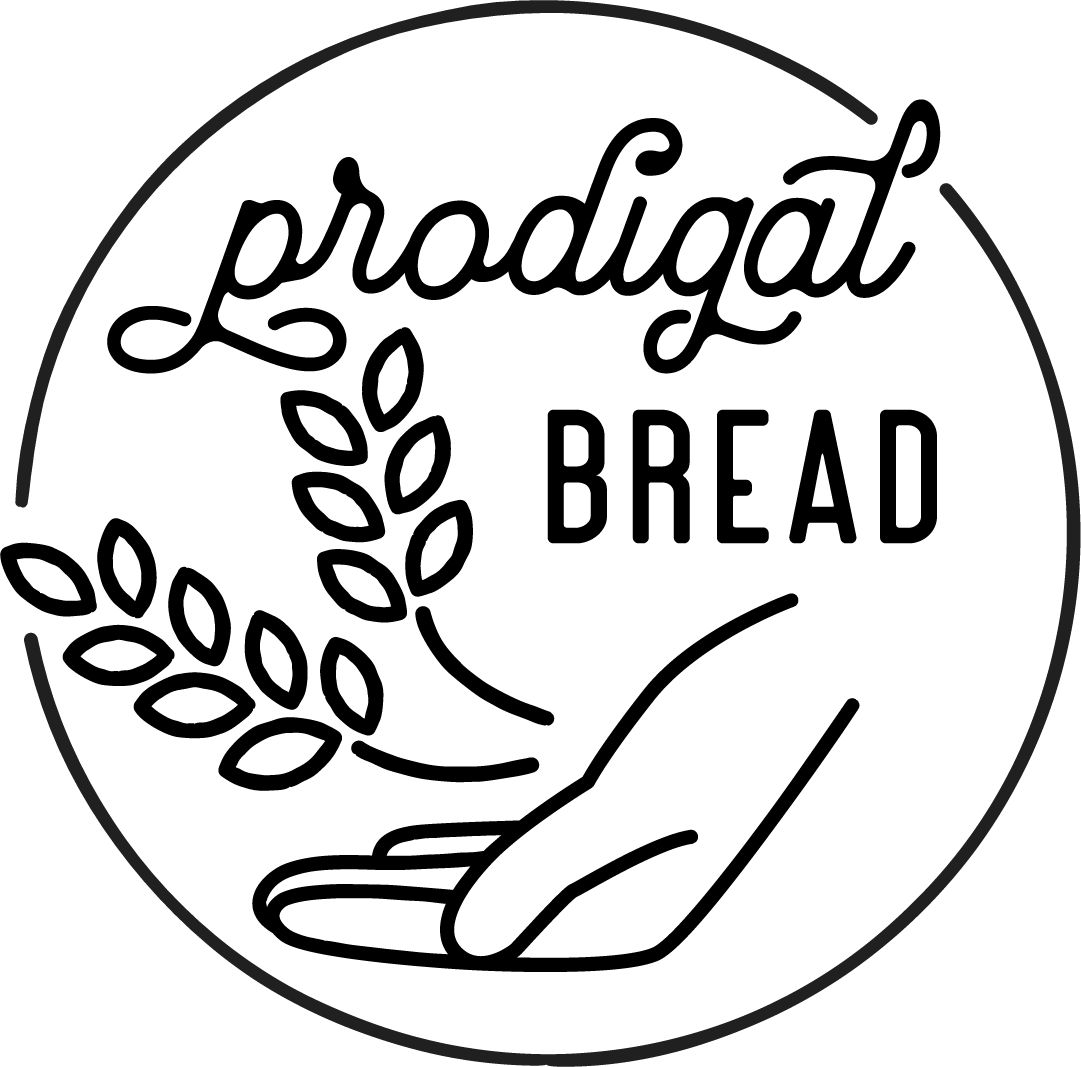
About Us
Learn the art of sourdough baking
Prodigal Bread is about bringing the aroma of freshly baked bread into your home. Maybe you are a beginner looking to increase your confidence in the kitchen, or a seasoned baker curious about sourdough. Whatever your baking experience may be, a Prodigal Bread class will enhance your skills and put the power (and bruschetta) into your hands!
Why “Prodigal Bread?”
The beloved story of the Prodigal Son captured my heart about 14 years ago. It’s such an utterly relatable tale. When seasons change in my life, I draw close to different characters in the story. Sometimes I identify most with the younger son; lost and found, finally home after a terrible journey. Sometimes I can feel the strain of the father, searching the horizon in hope that his son will at last return. Sometimes, like the older son, I feel trapped, just outside the house. This is the best thing about a parable. It continues to speak to us through all of life’s changing circumstances.
In 2016 I started baking sourdough bread. I also became pregnant with our third son, and we moved to a new home close to my husband’s workplace. On top of all this, I was completing a degree requirement, which included observing the stroke coordinator at our community hospital. I remember one night driving home from the hospital with a sore back and aching feet, ready to change into pajamas and prop a half dozen pillows around my very pregnant belly. I felt hungry that day, beyond physical hunger. I remember longing for a bowl of something warm, homemade, and fragrant; something around which to cup my hands and concentrate my restless mind.
I’ve thought often about that longing, trying to name it. It was more than hunger, it was a bittersweet longing to feel rested, welcomed, and nourished. I think it’s a longing for home.
Home
Home is such a powerful word, isn’t it? It goes beyond four walls or a table or bed. It goes beyond a feeling, too. Home is a word for something real, something anchored and alive, and we put so much effort into obtaining it. We buy throw pillows and scented candles and knitted blankets, ice makers and twinkly lights and patterned glass. It’s all an effort to pursue something we need to thrive.
I don’t think it was a coincidence that I became fascinated with sourdough the same year I was nurturing new life and moving homes. There’s something about sourdough bread that is both new and old. It’s familiar and fresh. Baking sourdough feels like coming home.
Where have we come from?
Before the isolation of commercial yeast, sourdough was our only option for leavening yeasted dough, and throughout history it has reigned as one of the most popular ways to leaven bread. Sourdough cultures are a complex relationship of yeast, bacteria, and enzymes. It is a community of microbes working to prepare grain for our bodies to digest. It works slowly, which is a boon for our digestive systems, as the extra time allows for the breakdown of sugars into gut-beneficial lactobacilli (and many other microbes).
In contrast, commercial yeast is a single strain of yeast. It is fast-acting, shelf-stable, and single-minded. It adds volume to bread dough extremely quickly and is a boon for consistent performance and appearance.
I still use commercial yeast in my kitchen, especially in tandem with sourdough. I don’t have anything against using a shelf-stable yeast and focusing on performance, per se. However, the abandonment of sourdough for commercial yeast is sort of an analogy for what has happened in our culture in the past 150 years. We’ve moved from slow, beneficial, and community-based living to prioritizing single-minded, rapid growth with little long-term benefit.
Baking the true, good, and beautiful
Choosing to bake sourdough is a little bit like coming home. It’s a little bit like retracing one’s steps and watching the outline of a familiar house slowly appear on the horizon. It’s a little bit like a warm welcome to what is good, true, beautiful, and real.
That’s one reason I chose the name “Prodigal Bread.” I want you to experience the joy of homecoming in your kitchen and on your table.
Welcome home, friend!


